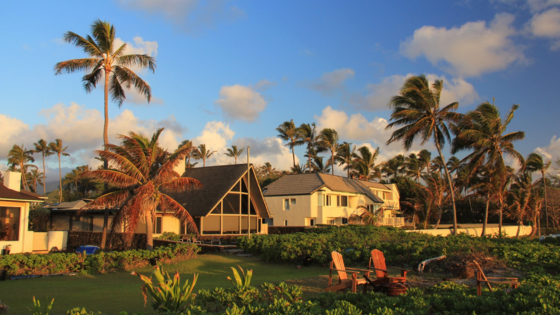Whether you’ve been in your home for years or you’ve recently downsized to a new house, homeowners insurance will help protect your investment. The following homeowners insurance tips for seniors will help you avoid unexpected challenges while ensuring you gain the most from your coverage.
- You may need more than one policy.
Homeowners insurance covers many common losses, but it doesn’t cover everything. For example, in addition to fire, homeowners insurance typically provides coverage for damages or losses caused by smoke damage, theft and vandalism, falling objects, and sudden discharge from plumbing systems. Check your policy for the full list of covered perils (or the full list of excluded perils).
Homeowners insurance policies do not typically cover flood or earthquake damage. Policies in Hawaii also exclude hurricane damage. You will need to purchase a separate flood and/or hurricane insurance policy if your area is affected by these exposures.
- Your lender likely has strict coverage requirements.
If you have a mortgage or reverse mortgage, your contract will require you to maintain homeowners insurance. It may also require you to carry flood and hurricane insurance.
Furthermore, the homeowners insurance you have must meet the lender’s requirements. For example, it may require you to carry enough insurance to cover the replacement cost of your home. Failing to meet these requirements could have serious consequences, such as foreclosure or being forced to pay for a more expensive policy that the lender selects.
When purchasing homeowners insurance, contact your lender to ensure your new policy meets all the requirements and be sure to provide the lender with proof of coverage.
If you don’t have a mortgage or reverse mortgage, you are not required to purchase homeowners, flood or hurricane insurance. However, going without coverage means you may lose everything or face exorbitant out-of-pocket costs if a disaster strikes. Having insurance that covers the replacement cost of your home is always smart, even when it’s not required.
- You may be eligible for discounts.
Talk to your insurance agent to make sure you’re receiving every possible discount. For example, you may receive a discount for bundling home and auto insurance. Some insurers will also offer discounts for improvements to your home, such as security systems or smart leak detectors.
- Condo owners also need coverage.
Your condo association should maintain a “master policy” that covers property shared by all condo owners, such as the roof, the lobby, and any common areas. However, individual unit owners still need insurance to cover their own property. To avoid coverage overlaps or gaps, find out exactly what your association’s insurance policy covers and then talk to your insurance agent about the personal coverage you need.
- Your homeowners insurance policy covers more than your house.
When purchasing homeowners insurance, people often focus on securing coverage for the structure of their home. This is important, as your home is a valuable asset. However, your homeowners insurance also includes other protections.
For example, a standard homeowners insurance policy also provides a set amount of coverage for your personal belongings, such as your furniture and electronics. This coverage extends to losses that occur outside of your home. For example, if your camera is stolen from your car, you can file a claim through your homeowners insurance policy.
If you own expensive jewelry, artwork, antiques or collections, tell your insurance agent so they can ensure that the coverage limit for your personal belongings is sufficient.
Standard homeowners insurance also provides living expense coverage if your home is uninhabitable due to a covered loss. For example, imagine your home is badly damaged in a fire and it’s not safe to stay there until the repairs are complete, which could take weeks or months. Your homeowners insurance policy may cover hotel costs and other related expenses. Since coverage amounts and requirements vary, you should check your policy for details.
Finally, many standard homeowners insurance include some liability coverage. For example, if a visitor slips on your front porch and breaks a hip, your homeowners insurance policy may cover the injured person’s medical bills, up to the liability coverage limit.
Do you need help securing homeowners insurance? Find an agent.

